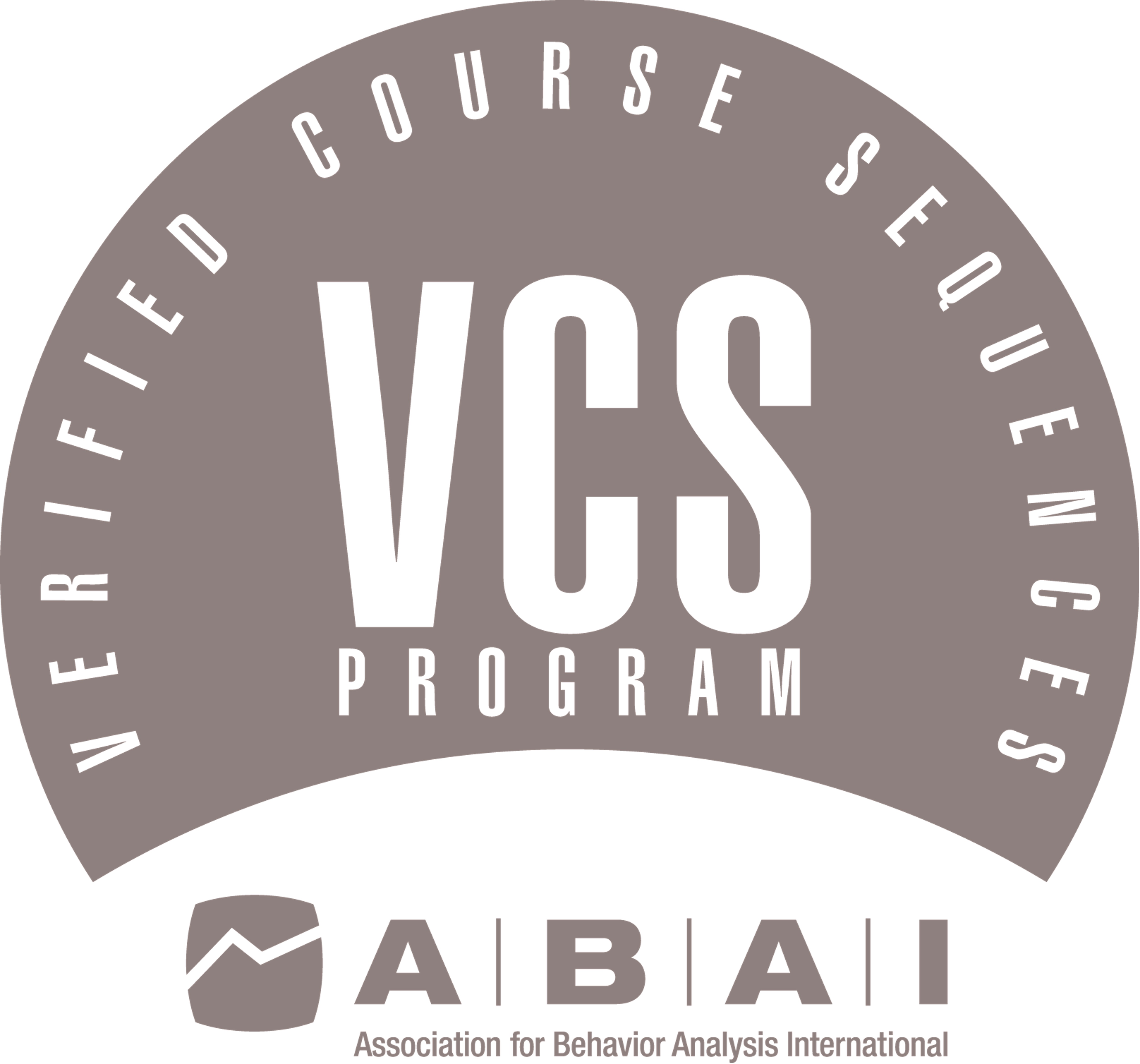Program Overview
The Master of Science in Applied Behavior Analysis (M.S. in ABA) program at the University of Alabama in Huntsville (UAH) was developed to address the rapidly growing demand for qualified behavior analysts across the state and region.
UAH’s M.S. in ABA program provides high-quality, flexible coursework that equips students with the knowledge and applied experience necessary to sit for the Board Certified Behavior Analyst (BCBA®) examination and to make meaningful, lasting contributions in the field. The program emphasizes both the scientific and ethical foundations of behavior analysis, combining rigorous academic principles with real-world applications.
Designed for individuals with backgrounds in education, psychology, counseling, social work, and related disciplines, the program offers a supportive learning environment focused on professional growth and practical skill development. With online evening classes, students can continue working full- or part-time while completing their degree, making this program especially accessible to those balancing career and education.
Recognized as a Tier 2A program by the Association for Behavior Analysis International (ABAI), UAH’s M.S. in ABA stands out for its quality curriculum, faculty expertise, and commitment to preparing competent, compassionate, and effective behavior analysts.
Meet Our Faculty
Our dedicated faculty bring a wide range of expertise in behavior analysis, research, and professional practice. Their commitment to mentorship and evidence-based teaching supports students’ academic growth and career readiness.
Program Mission:
Our mission is to prepare graduate students to become skilled behavior analysts ready to serve individuals, families, and communities through ethical and evidence-based practices. Through rigorous coursework and hands-on experience, students will gain the knowledge and skills needed to become certified professionals in applied behavior analysis and contribute meaningfully to research and practice in the field.
Program Objectives:
- Students will describe the philosophy of behaviorism, key theoretical frameworks, and the underlying scientific assumptions for the field to help explain behavior in everyday life across individuals.
- Students will translate their understanding of behavioral concepts and principles into effective application across research and real-world practice through integrated classroom instruction, supervised practicum experiences, and capstone projects.
- Students will become independent in the application of behavior analytic research methods through integrated classroom instruction and supervised practicum experiences, culminating in a capstone project that showcases their ability to conduct rigorous, practice-relevant research.
- Students will become independent in assessing and intervening on behavior, beginning with structured coursework-based applications and progressing toward implementation in real-world settings through supervised practicum experiences.
- Students will become independent in applying the dimensions of applied behavior analysis and demonstrate the ability to apply them effectively in both classroom and real-world practice settings.
- Students will progressively develop the skills and independence necessary to apply the ethical standards of behavior analysis in applied professional settings through structured coursework and embedded scenarios.
- Students will demonstrate social and cultural awareness developed through classroom instruction, with opportunities to apply this knowledge in course assignments and supervised practicum experiences.
- Students will acquire the skills necessary to provide effective supervision and monitor organizational systems in accordance with BACB guidelines. Through classroom instruction and by participating as supervisees, students will gradually transition to applying supervision practices with others as they progress through the program.
- Using experimental analysis and basic research methods, students will evaluate behavioral principles as they relate to assessment and treatment across classroom- based assignments, practicum settings, and capstone work.
2024 Program Outcomes (as a Verified Course Sequence):
- Annual Reporting Period: 2024
- Degrees Conferred: 7
- Median Time to Graduation: 1.33 years
- Students Enrolled: 28
- Withdrawals (non-graduation related): 3
- Applications Received: 25
- Students Admitted: 20
- First-Time BCBA Exam Takers: 10
- First-Time Pass Rate: 100%
- Median Undergraduate GPA of Admitted Students: 3.46
Note: These outcomes reflect the program under the Verified Course Sequence (VCS) structure. Updated outcomes for the redesigned program will be shared after implementation begins in Fall 2025.
Program Duration
- The M.S. in ABA program requires a minimum of 36 hours of graduate coursework.
- For students who maintain full-time status , the program can be completed in 5 semesters.
Program of Study
| Semester | Courses | ||
|---|---|---|---|
| Fall 1 | ABA 601 (3 hours) | ABA 605 (3 hours) | ABA 620 (1 hour) |
| Spring 1 | ABA 603 (3 hours) | ABA 604 (3 hours) | ABA 621 (2 hours) |
| Summer | ABA 602 (3 hours) | ABA 622 (3 hours) | |
| Fall 2 | ABA 606 (3 hours) | ABA 609 (3 hours) | ABA 623 (2 hours) |
| Spring 2 | ABA 607 (3 hours) | ABA 608 (3 hours) | ABA 624 (1 hour) |
Course Descriptions
This course will introduce students to the basic concepts and principles of behavior analysis.
This course will provide students with an inclusive review of the theoretical foundations of radical behaviorism and the history of behaviorism.
This course aims to introduce students to the fundamentals of behavior analytic research methods.
This course will prepare students to conduct relevant behavioral assessments and to incorporate assessment results with treatment selection using best practices in the field of applied behavior analysis.
This course will familiarize the student with the ethical and professional responsibilities of Board Certified Behavior Analysts.
This course expands on the concepts, principles, procedures, and techniques learned in ABA 601, ABA 602, and ABA 604.
This course will prepare students to understand how principles of behavior are discovered and described in the context of basic research.
This course will introduce students to performance analysis and management, supervision, staff training, behavioral systems analysis, organizational culture, and leadership.
This course will prepare students to conduct supervision using the principles of behavior analysis.
This course is the first in the ABA practicum series and focuses on the development of clinical and professional skills for those training to become Board Certified Behavior Analysts (BCBAs).
This course is the second in the ABA practicum series, in which students will produce an approved capstone project proposal.
This course is the third in the ABA practicum series in which students must begin data collection and analysis as outlined in their approved capstone project proposal.
This course is the fourth in the ABA practicum series in which students must complete the data collection and analysis as outlined in their approved capstone project proposal.
Admission Requirements
To apply, you must meet the following:
Minimum Requirements:
- GPA of 3.0 (on a 4.0 scale)
- Writing sample
- Three letters of recommendation
- Interview
- Proof of English proficiency (if international): UAH Requirements
Preferred Qualifications:
- Prior experience in the field
- GPA above 3.5
Application Process
- Submit an application to UAH Graduate School: select the M.S. in ABA program
- Send official transcripts from all degree-granting institutions
- Application deadline: June 15
- Attend a mandatory orientation upon acceptance
Application fee: $60
Fall admission only
Tuition & Fees
For the most current information on tuition and fees, visit the UAH Bursar’s Office.
2025–2026 Tuition & Fees for ABA Graduate Students
| Fee Type | Rate |
|---|---|
| Tuition (per credit hour) | $445 |
| Infrastructure Fee (per credit hour) | $22 |
| College of Education, Sport, and Human Sciences Fee (per credit hour) | $24 |
| Total Standard Cost (per credit hour) | $491 |
| ABA Practicum Course Fees (flat per course) | Based on supervision/site visit needs |
|---|---|
| ABA 620 - Practicum I | $20 |
| ABA 621 - Practicum II | $40 |
| ABA 622 - Practicum III | $60 |
| ABA 623 - Practicum IV | $40 |
| ABA 624 - Practicum V | $20 |
The Charger EDGE Tuition Discount Program
Visit uah.edu/charger-edge for details. Please read instructions carefully.
Current and Prospective Students
The ABA Program Graduate Student Handbook provides comprehensive information about program requirements, academic policies, student responsibilities, and available resources. It is intended to guide both prospective and current students throughout their academic journey.
Becoming a BCBA
The BACB published this handbook which describes the requirements for obtaining and maintaining BCBA certification.
Certification vs. Licensure
In addition to the certification requirements described in the BCBA handbook, many states, including Alabama, have licensure requirements for Board Certified Behavior Analysts to practice in their states. For an updated list of licensure requirements, please visit the following website: https://www.bacb.com/u-s-licensure-of-behavior-analysts/
If you plan to practice behavior analysis in a state with a licensure law, please contact Dr. Jennifer Bruzek to identify whether the M.S. in ABA at UAH will meet the requirements.
Experiential Learning and Capstone Project
Students are strongly encouraged to identify a potential fieldwork setting and a qualified BCBA® supervisor prior to the interview process. During admission interviews, applicants may be asked to discuss their preliminary plans for completing the supervised experience hours required for BCBA® certification. Although supervised fieldwork is not a requirement of the M.S. in ABA degree itself, obtaining appropriate supervision is essential for meeting professional certification standards. Program faculty are available to provide guidance and support as students prepare for this important aspect of their professional development. Applicants with questions regarding experiential learning or the capstone project are encouraged to contact Dr. Laura Senn (las0051@uah.edu) for additional information.
It is important to note that supervised fieldwork and experiential learning are not synonymous, though they often include overlapping activities. Experiental learning refers broadly to opportunities for students to apply behavior-analytic principles in real-world or simulated contexts as part of their academic coursework. Experiential learning is required by the M.S. in ABA program at UAH. Supervised fieldwork, by contrast, refers specifically to the structured experience hours required by the Behavior Analyst Certification Board® (BACB®) for eligibility to sit for the BCBA® examination. Supervised fieldwork is not required by the M.S. in ABA program at UAH. While these experiences may occur in similar settings, they differ in scope, structure, and purpose of certification.
The M.S. in Applied Behavior Analysis program integrates hands-on learning and a culminating capstone project to meet the rigorous academic and professional standards established by the Association for Behavior Analysis International (ABAI). These experiences enable students to apply theoretical knowledge to practical challenges and contribute meaningfully to the discipline through applied and scholarly work.
To support these opportunities, the program assists students in securing high-quality practicum placements. Faculty may recommend clinics or other sites in the students’ region, but students are also welcome to propose their own sites, provided they meet program standards. All placements must include a formal agreement with UAH and comply with the requirements outlined in the practicum course sequence (ABA 620–624). Each student’s practicum is supervised by a UAH faculty advisor and is designed to complement and enhance the student’s capstone experience.
Completion of a capstone project is required for graduation. This project satisfies ABAI’s standard for a thesis-equivalent academic experience, demonstrating the student’s ability to define a research question, design and conduct a methodologically sound investigation, and synthesize results into a scholarly report. Capstone projects must meet publication-quality standards and are typically conducted within the student’s approved practicum site, integrating academic preparation with professional application.




